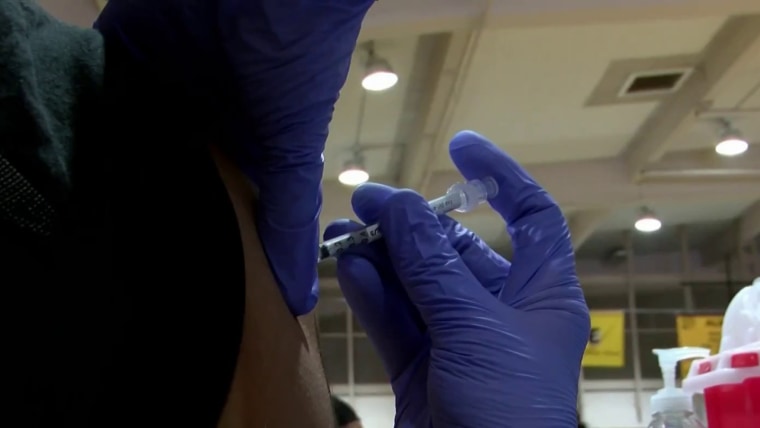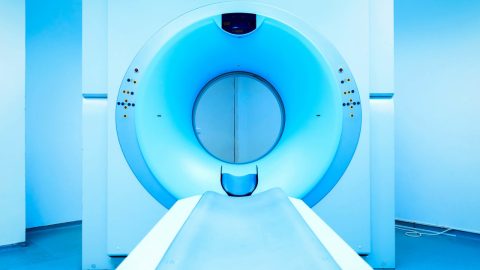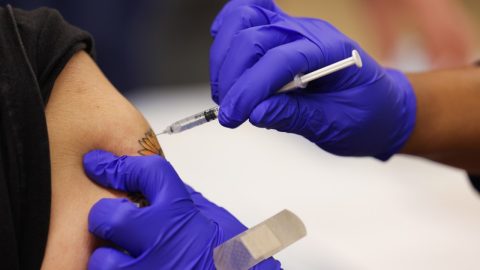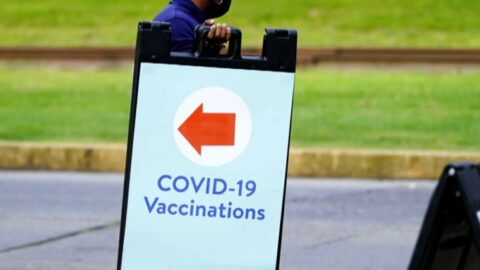The so-called delta variant of the coronavirus now accounts for nearly 10 percent of new cases in the United States, the Centers for Disease Control and Prevention said Tuesday.
The agency on Monday declared the variant, which was first detected in India, a “variant of concern,” a designation given when there is increased evidence of factors such as transmissibility or severity or reduced effectiveness of vaccines or treatments.
Full coverage of the coronavirus outbreak
The change in classification “is based on mounting evidence that the Delta variant spreads more easily and causes more severe cases when compared to other variants, including B.1.1.7 (Alpha),” the CDC said in a statement to NBC News. The alpha variant was first detected in the United Kingdom, and in April, it became the dominant strain in the U.S.
Data for the two-week period ending June 5 predicts that the delta variant accounts for 9.9 percent of cases in the U.S., the CDC said. For the two-week period ending May 22, that figure was 2.7 percent.
Experts who track viral activity weren’t surprised by the increase in the proportion of delta cases in the U.S.
“Because [delta] has an advantage in terms of transmissibility, it takes over,” said Dr. Wafaa El-Sadr, director of ICAP at Columbia University and professor of epidemiology and medicine at Columbia Mailman School of Public Health in New York City. “It’s just a matter of time.”
The vaccines available in the U.S. are effective against the delta variant, as well as other circulating variants. Two doses are required for the Moderna and Pfizer-BioNTech vaccines, while the Johnson & Johnson vaccine requires just one.
Public Health England reported Monday that two doses of the Pfizer vaccine are highly effective — 96 percent — at preventing hospitalization from the variant. Still, the U.K. is seeing rapid spread of delta, leading Prime Minister Boris Johnson to delay the country’s reopening by a month, to July 19.
Because the delta variant is able to spread from person to person more easily, experts say those who have not had the vaccine remain especially vulnerable.
“That’s where you’re more likely to have clusters of transmission,” El-Sadr said.
“This is the most dangerous phase of the pandemic coming up for people who are unvaccinated,” said Dr. Gregory Poland, director of the Mayo Clinic’s Vaccine Research Group in Rochester, Minnesota.
As of Tuesday, just over 54 percent of adults in the U.S. had been fully vaccinated, and nearly 65 percent had received at least one dose.
Follow NBC HEALTH on Twitter & Facebook.










Recent Comments